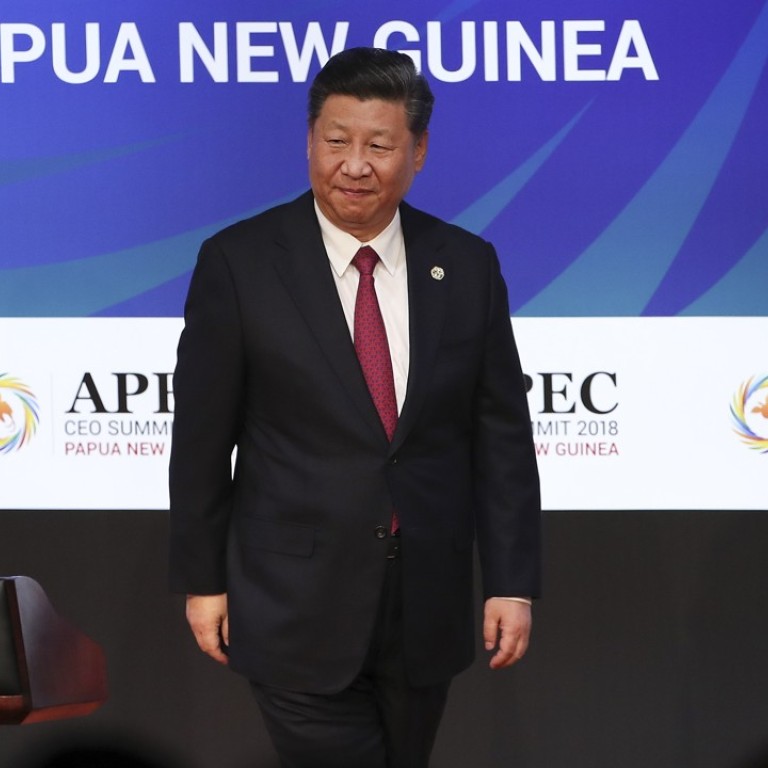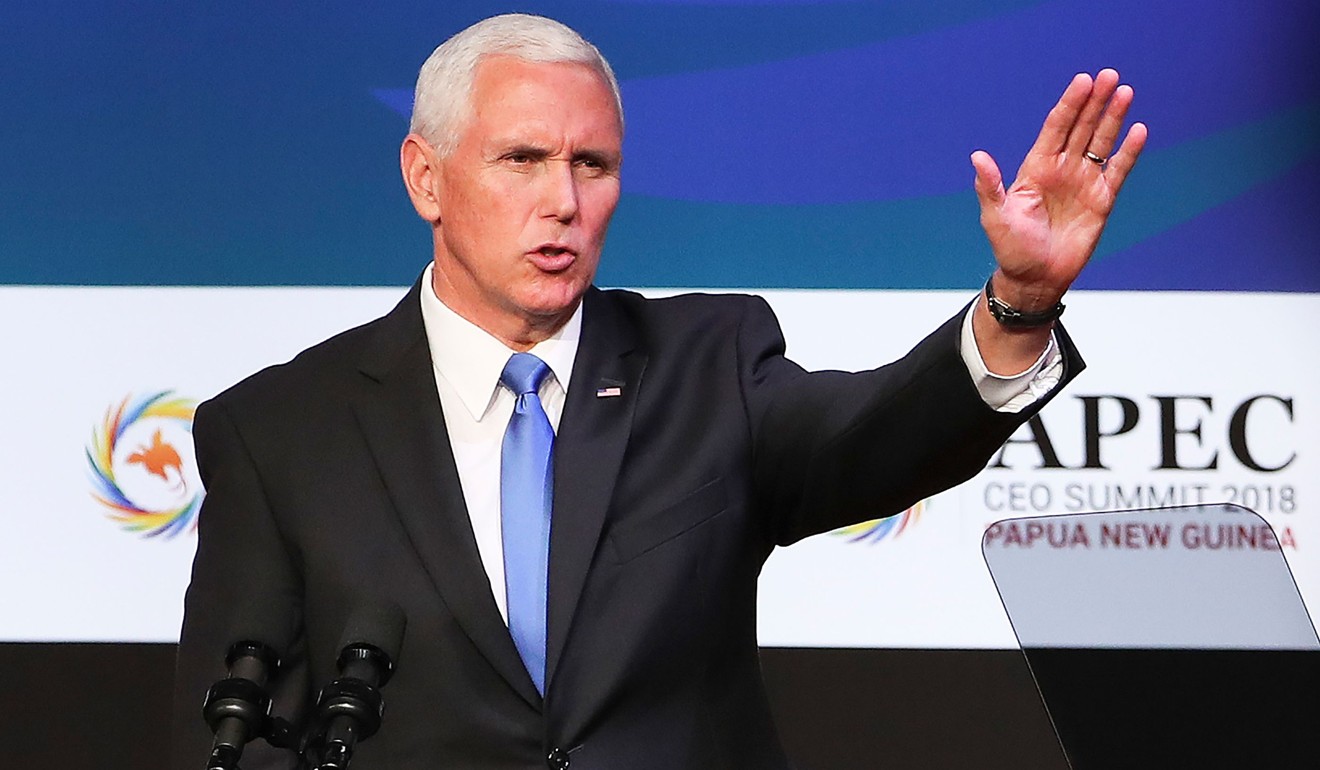
Nothing to see here … China’s state media has little to say over Apec summit drama
- Beijing censors reports that there’s no communique at Apec gathering
- No word about Chinese officials trying to ‘barge in’ on PNG foreign minister
The annual Apec summit may have ended for the first time with no joint communique but there was no word of the discord in China’s state media – the latest example of Beijing’s efforts to control the narrative about its international economic ties.
While President Xi Jinping’s presence at the Asia-Pacific Economic Cooperation summit was the top story on China’s state television, People’s Daily and the official Xinhua news agency on Monday, the outlets focused their coverage on Xi’s itinerary and his speeches, leaving out the impasse resulting from deep divisions over trade between Beijing and Washington.
In addition, a government statement summarising a press conference by the Chinese delegation in Papua New Guinea on Sunday left out a question on media reports that Chinese officials had tried to “barge” into the office of Papua New Guinea’s foreign minister to influence a draft communique.
Most social media posts on China’s Weibo and WeChat about that lack of agreement at Apec were deleted on Monday.
The Chinese official media traditionally portray Xi’s foreign travel in the best possible light, downplaying or ignoring any controversy. The coverage of the Apec meeting followed that pattern.
Still, Beijing’s efforts to present the event as a harmonious one, without reference to the rivalry between China and the United States, comes as China has tightened coverage of the trade war and economic news.
Chinese journalists have been told to avoid linking the trade war with the economic downturn lest that destabilise financial markets. Financial news channels at several internet portals were ordered to cease updating for weeks as a warning that their self-censorship was not strict enough.
For the Apec summit, China’s state run outlets gave no airtime or column inches to US Vice-President Mike Pence’s speech, in which he highlighted China’s unfair trade practices, forced technology transfers and trade imbalances, and criticised, indirectly, China’s “Belt and Road Initiative”.
Apec summit ends without agreement following US-China clashes
Instead, Xinhua published editorials and reports praising Xi’s speeches.
Papua New Guinean Prime Minister Peter O’Neill said on Sunday that he would issue a “chair’s statement” reflecting the issues the participants did agree upon. When asked about the impasse, O’Neill said: “You know the two big giants in the room, so what can I say?”

Beijing’s muted coverage of arguments and differences at Apec, meanwhile, is in line with the Chinese government’s recent efforts to play down confrontation against the US, especially with Chinese President Xi Jinping expected to meet his US counterpart Donald Trump at the G20 summit in Argentina later this month.
China’s state media has, for now, refrained from criticising Trump and his administration directly.

